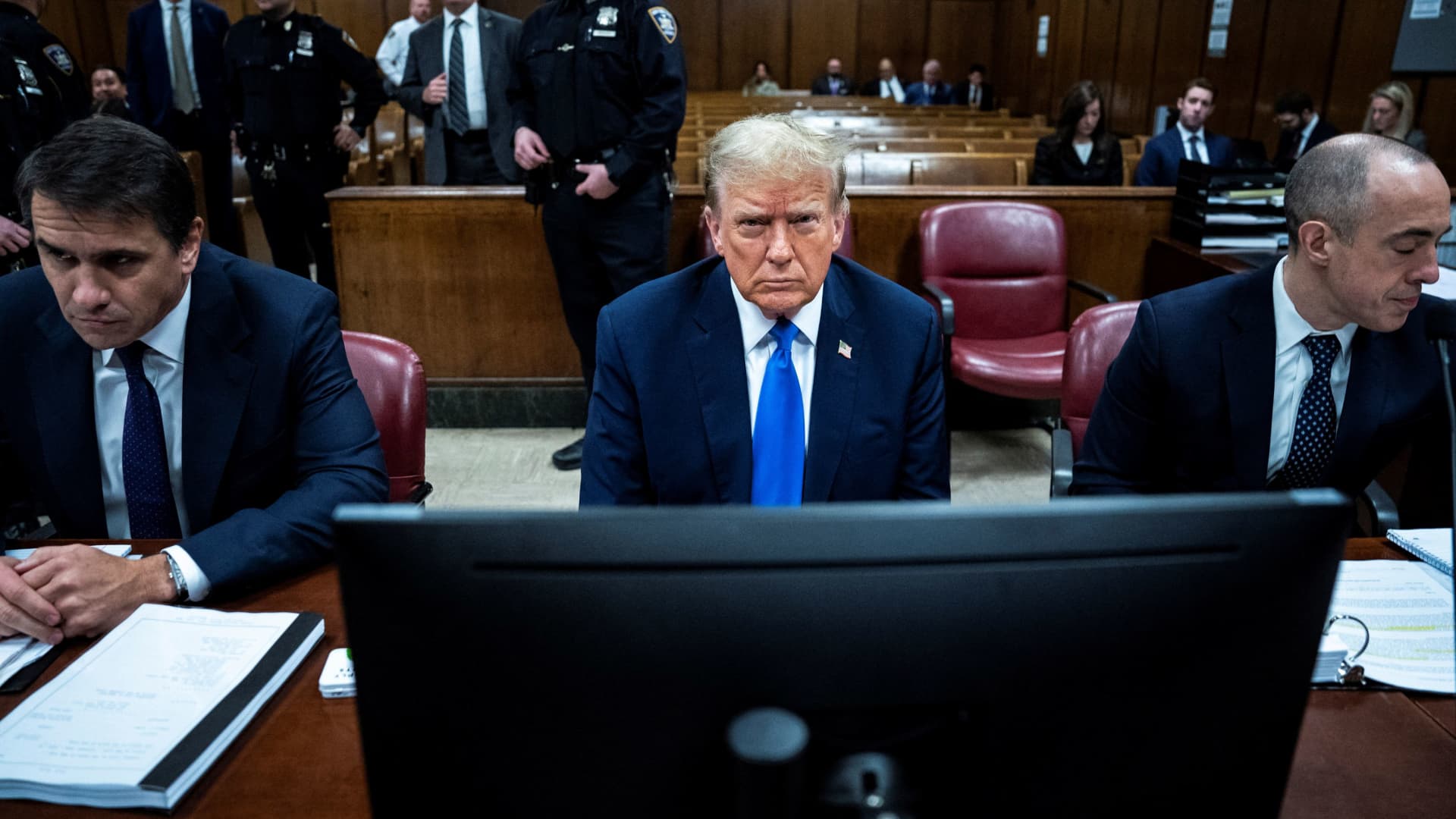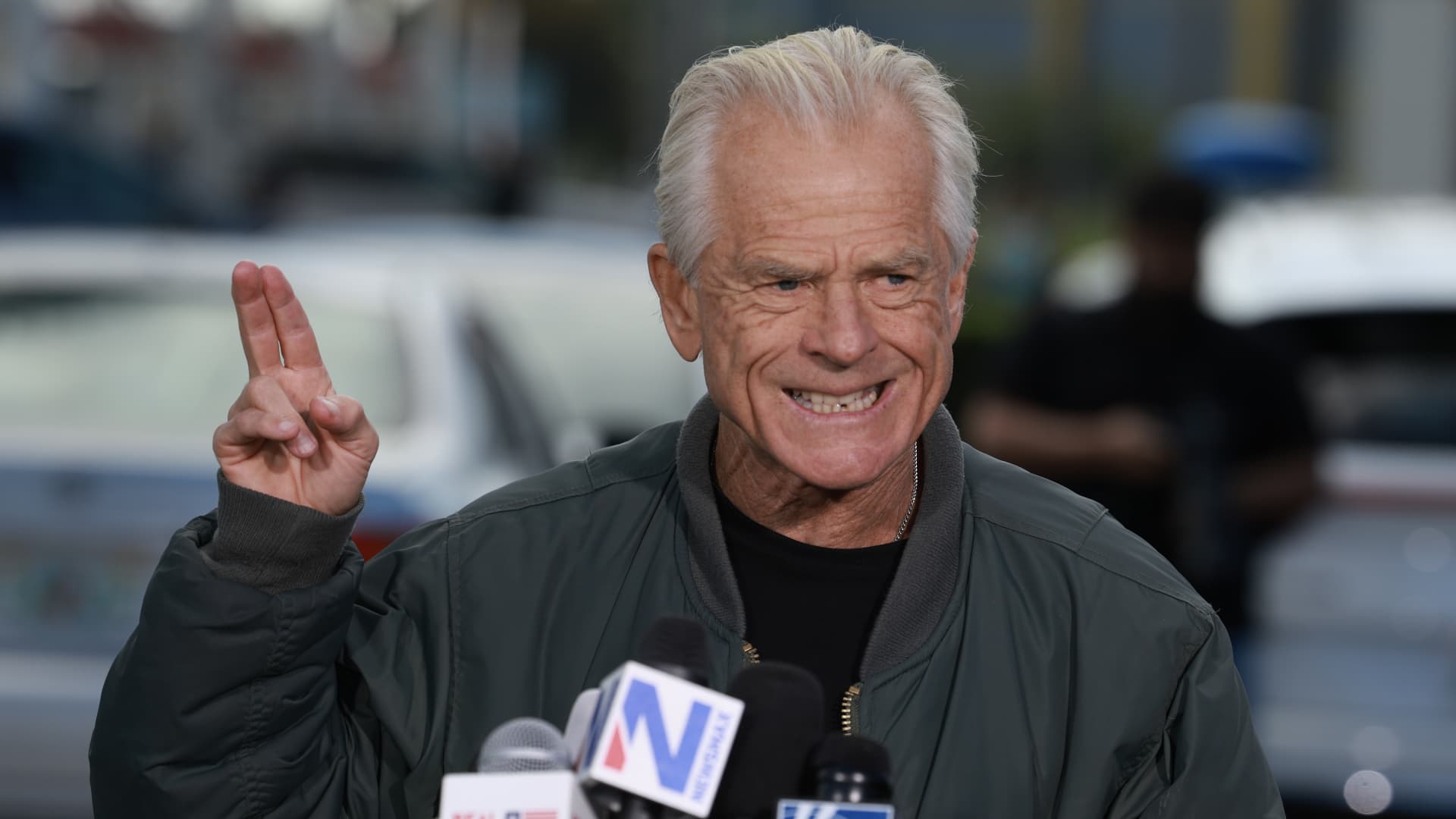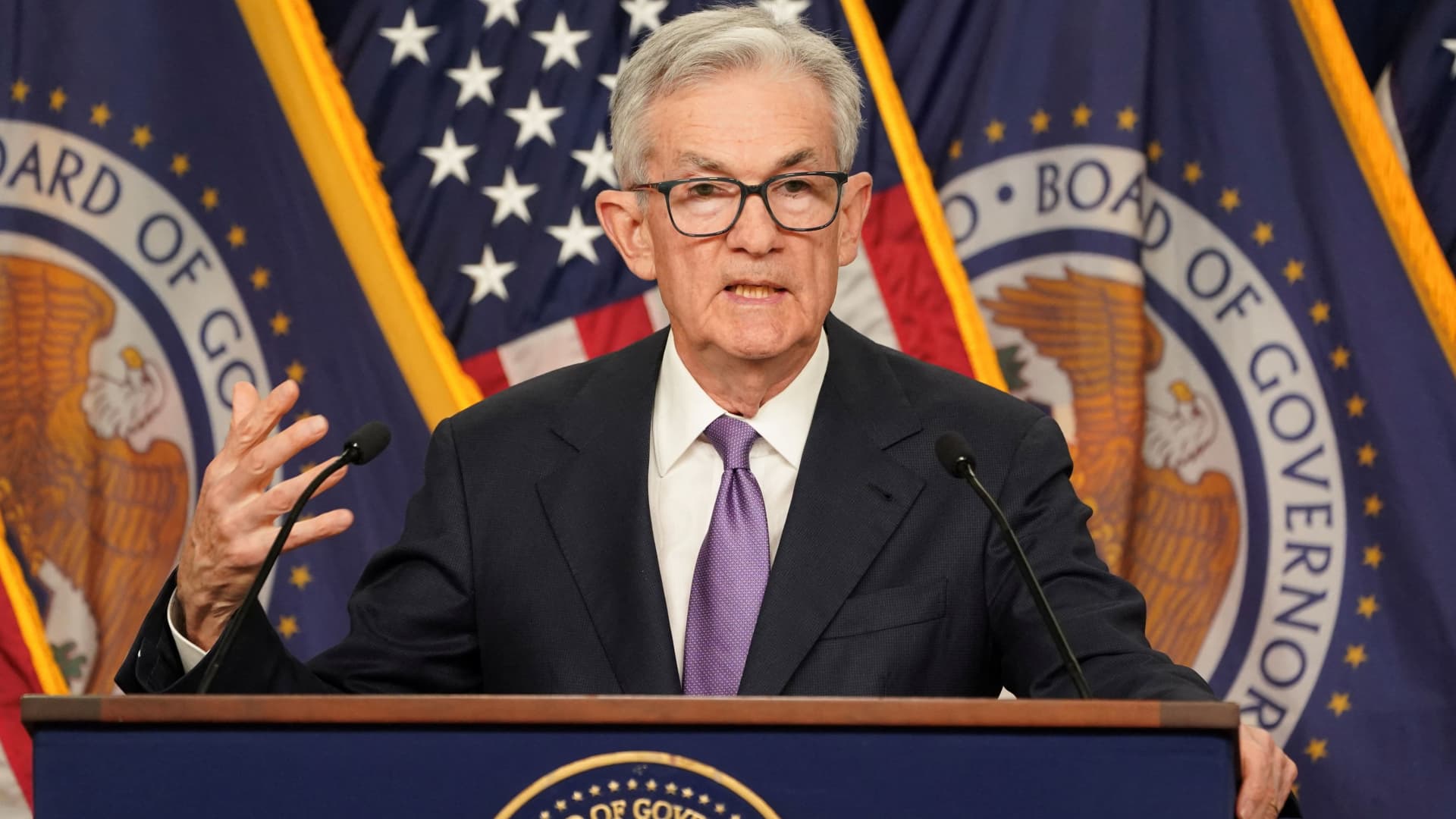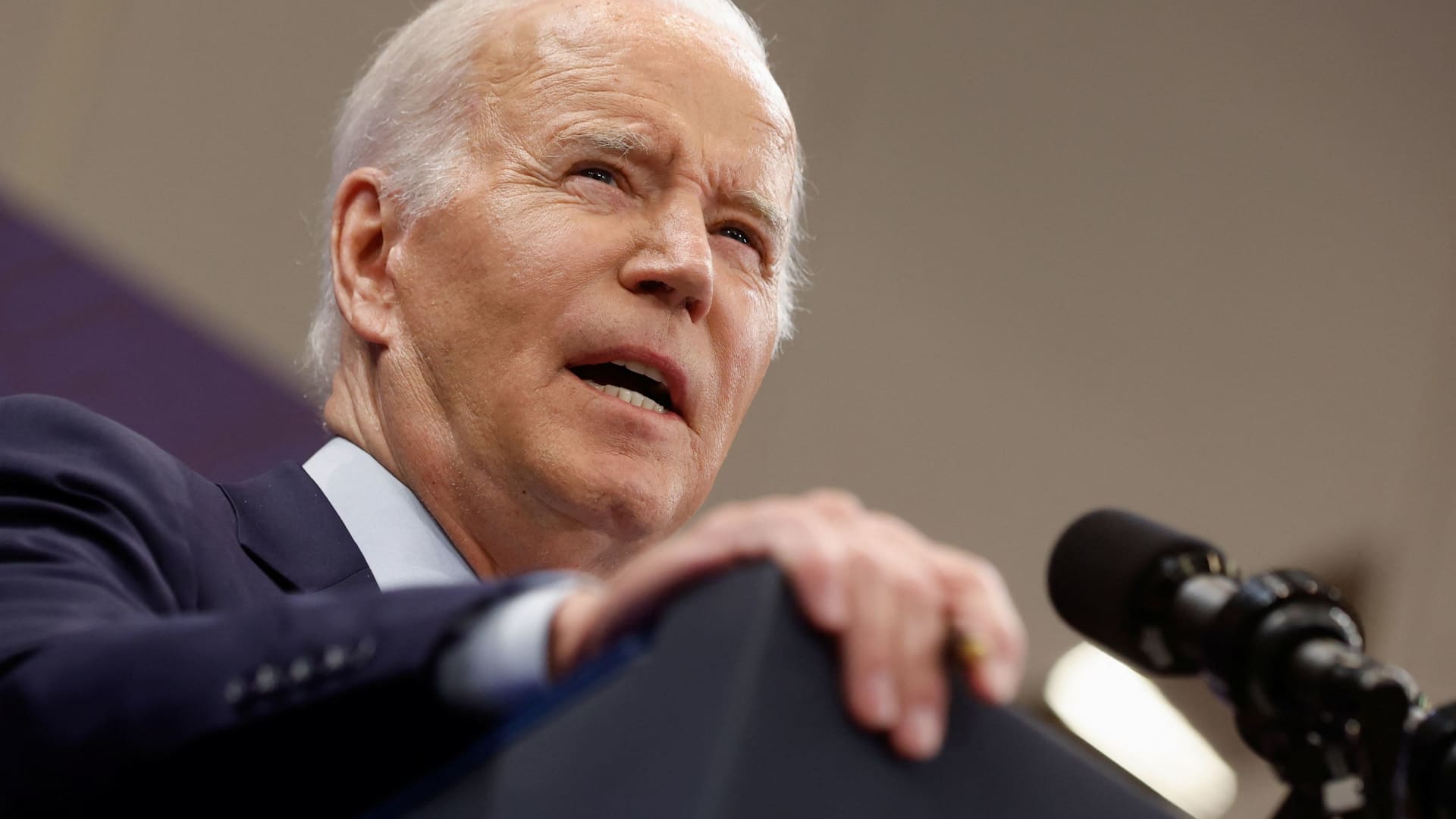
Iran’s Supreme Leader Ali Khamenei leads the funeral prayer for the late Iranian President Ebrahim Raisi, Foreign Minister Hossein Amir-Abdollahian and other officials who died in a helicopter crash at the Tehran University campus in Tehran, Iran, on May 22, 2024.
Iranian leader’s press office | Anadolu | Getty Images
Iran is holding early elections on June 28 following the sudden death of former Iranian President Ibrahim Raisi in a helicopter crash. But the vote is neither free nor likely to bring about significant change in the country, analysts say.
The election comes against a backdrop of a struggling Iranian economy, widespread popular discontent and a crackdown on dissent. The district is also dealing with this high inflation, heavy sanctions from the West, increasing tensions with the USA, increasing nuclear enrichment by Iran and the war between Israel and Hamas.
Iran’s ultra-conservative Guardian Council, which ultimately decides who is allowed to vote, has approved a list of six candidates for the presidential election. Most are hardliners who hold strong anti-Western positions, with one candidate representing the reformist camp. All women who registered as candidates were disqualified by the council.
“Six out of 80 candidates made it through the Guardian Council review process. Of these six, five are true hardliners and one is a token reformist,” Behnam ben Taleblu, senior fellow at the Foundation for Defense of Democracies, told CNBC.
He described Iran’s Supreme Leader Ayatollah Khamenei as the country’s “only ‘voter’ of importance.”
He “seeks continuity, not change,” Ben Taleblu said, adding that half of the accepted candidates had been sanctioned by Western governments.
“Relatively predictable” result
For some Iran watchers, the upcoming elections represented an opportunity for the country’s government to “correct course,” or work to rebuild its relations with much of Iran’s population and improve its image.
“This is especially true after the protests, the crackdowns and the overall increased public discontent that has become almost a hallmark of Raisi’s time in office. The leadership here had … the option to at least create the appearance of a competitive election,” said Nader Itayim, Middle East editor at Argus Media.
Iranian President Ebrahim Raisi looks on during a television interview in Tehran, Iran, May 7, 2024.
Iran’s Presidency | WANA | Via Reuters
But with the announcement of the approved candidates on Sunday, “those hopes were largely dashed,” he said. “In reality, it is still primarily the hardliners who are losing.”
Elected in the summer of 2021 in the lowest turnout in a presidential election since the founding of the Islamic Republic in 1979, Raisi was a right-wing hardliner seen as a potential successor to the Islamic Republic’s aging supreme leader Khamenei.
Raisi, 63, was a harsh critic of the West and cracked down on the protest movement that swept the country after a young Kurdish Iranian woman, Mahsa Amini, died in the custody of Iran’s moral police in September 2022. Hundreds of people were killed in the crackdown .
Voter turnout is again expected to be low as many Iranians plan to boycott the vote, angered by a system they say is rigged and inefficient at improving their lives amid an economic crisis.
In a statement, the group “Union for Secular Republic and Human Rights in Iran” called for an “active boycott” of the presidential “show elections.”
Iranian governments have often blamed U.S.-imposed sanctions for the country’s woes.
This came after voter turnout in Iran’s March parliamentary election was also the lowest in a legislative contest in the Islamic Republic’s history at 41%.
“The leadership does not attach great importance to voter turnout”
As Khamenei and other leaders urge the public to vote, proving their legitimacy through voter turnout no longer appears to be such a problem for the Islamic Republic, says Sanam Vakil, director of the Middle East and North Africa Program at Chatham House.
“The Islamic Republic recognizes that there is a huge gap in expectations and demands between the system and its people, there is a gap in social liberalization, economic development and political opportunities that the system clearly cannot bridge – and this “It is prioritizing its traditional means of electoral legitimacy, as it did in past elections,” she said.
“The government is trying to push forward a competitive election but has clearly stacked the candidate list in favor of a number of conservatives to ensure the outcome is relatively predictable.”
Itayim of the Middle East agrees. “If the last election shows us anything, it’s that leadership isn’t that worried about voter turnout,” he said.
“They would like to see a higher turnout, but if it doesn’t come, that’s not a problem. “Ultimately it just seems like they are happy enough with the way things are going and don’t feel any immediate threat to their hold on power from the government, growing discontent, protests, etc.”
Iranian women cast their votes at a polling station during elections to select members of parliament and a key clerical body in Tehran on March 1, 2024.
ATTA KENARE | AFP
Iranians who decide to vote will go to the polls on June 28, with the possibility of a second round of voting if the result is very close.
Many in Iran believe the 2021 presidential election was rigged to ensure that Raisi, Khamenei’s protégé, would win, Itayim said. And the 85-year-old supreme leader now appears more emboldened and confident than ever.
Khamenei “seems to be going down this path of consolidating power, within the hardliner camps, the conservative camps, almost no matter what happens,” Itayim said.
“In my view, and considering who will be running this time, the upcoming elections are likely to lead Iran even further down the same path.”
Source link
2024-06-17 05:03:27
www.cnbc.com













